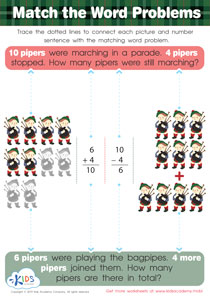Addition skills Normal Addition Worksheets for Ages 3-8
8 filtered results
-
From - To
Welcome to our "Addition Skills Normal Addition Worksheets" for children aged 3-8! These engaging and thoughtfully designed worksheets help young learners build foundational math skills through fun and interactive exercises. Each activity focuses on enhancing addition skills, promoting number recognition, and encouraging problem-solving abilities. Perfect for parents and educators, our worksheets cater to various learning styles, ensuring every child can thrive. With colorful illustrations and diverse activities, children will enjoy practicing their addition in a stress-free environment. Download our worksheets today and watch your child's confidence and math skills grow! Ideal for homeschooling, early learning centers, and extra practice at home.
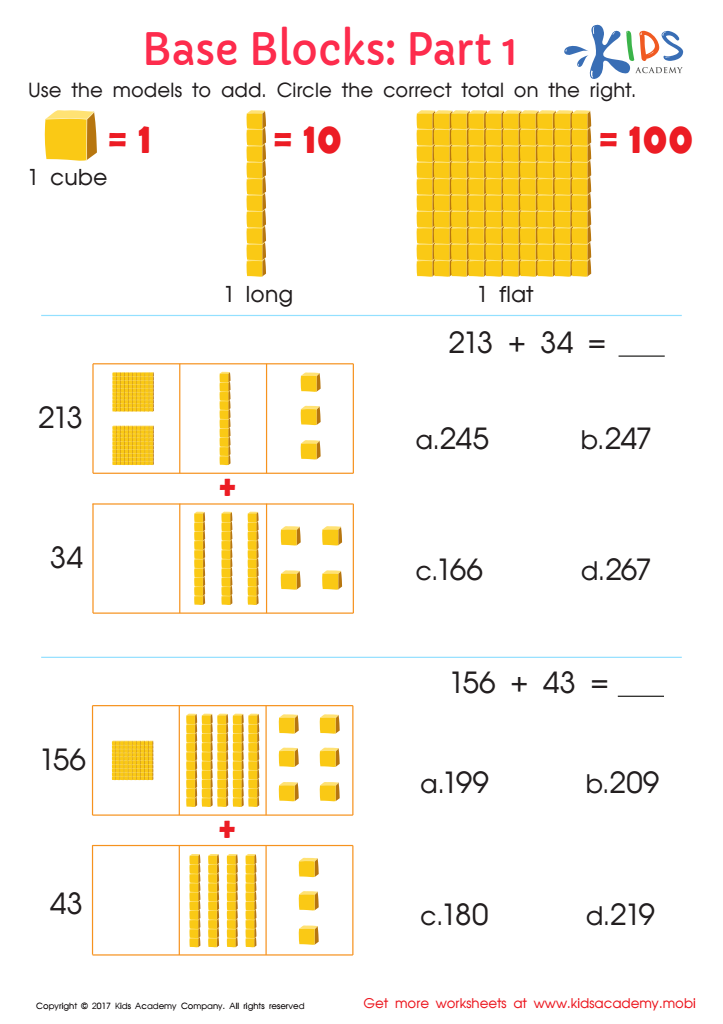

Base Ten Blocks Worksheet: Part 1
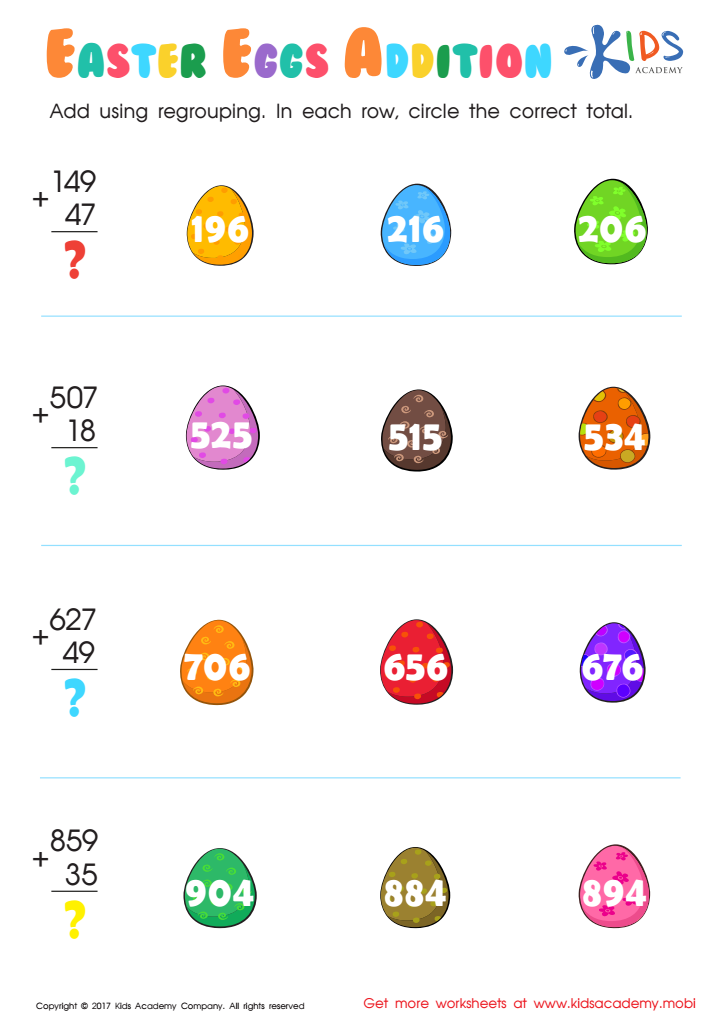

Addition with Regrouping Worksheet


7 Continents and 7 Seas Worksheet
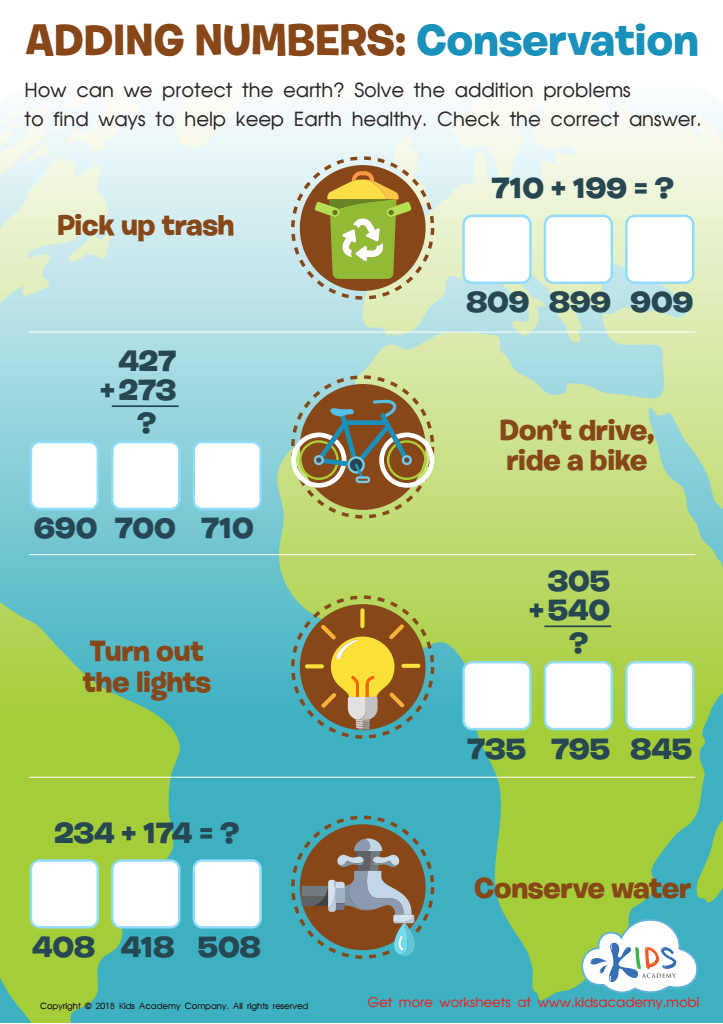

Adding Numbers: Conservation Worksheet


Adding Flower Petals Worksheet
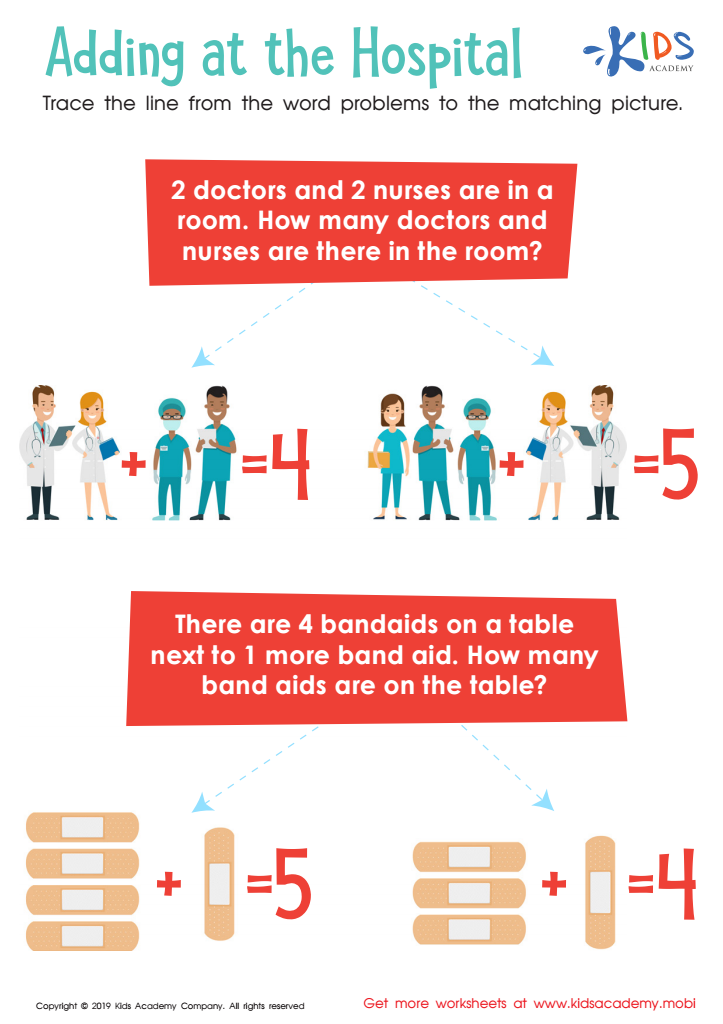

Adding at the Hospital Worksheet
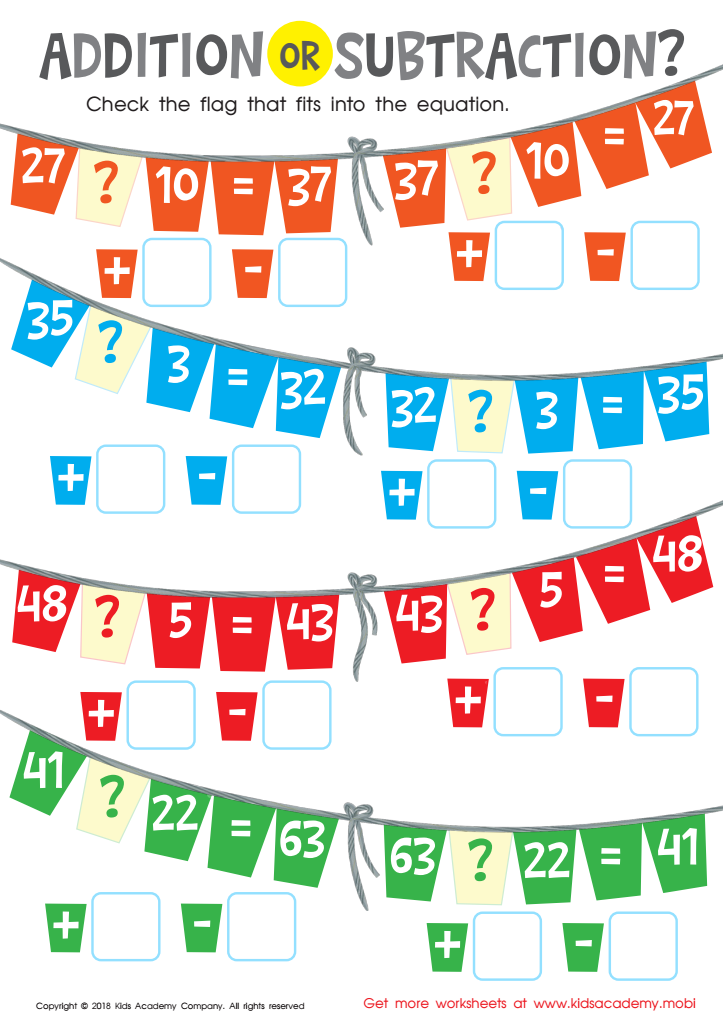

Addition or Subtraction? Worksheet
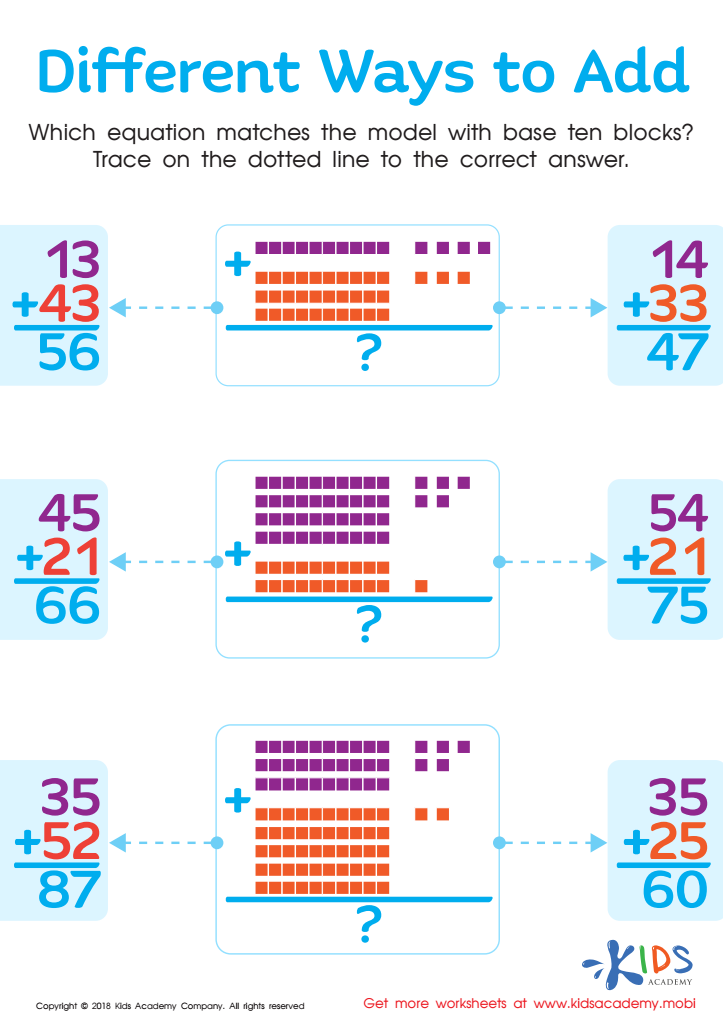

Different Ways to Add Worksheet
Addition skills are foundational in a child's early development, especially for children ages 3-8. Mastery of basic addition is crucial as it not only fosters mathematical understanding but also promotes cognitive development and problem-solving abilities. Learning how to add encourages logical thinking, pattern recognition, and the ability to handle abstract concepts in the future.
For parents and teachers, focusing on normal addition during these crucial years helps to build confidence in young learners. This skill is often the gateway to more complex mathematical operations, providing children with the tools they need for future academic success. Incorporating addition into everyday activities—such as counting toys, snacks, or steps—makes learning fun and relevant.
Moreover, addition skills enhance critical life skills like budgeting and time management later in life. They also promote perseverance as children learn that making mistakes is part of the learning process. Early attention to addition lays a strong emotional and intellectual foundation, enabling children to approach math with a positive mindset. Ultimately, valuing these skills equips children for more extensive educational journeys and helps them navigate a world increasingly driven by quantitative reasoning.

 Assign to My Students
Assign to My Students









